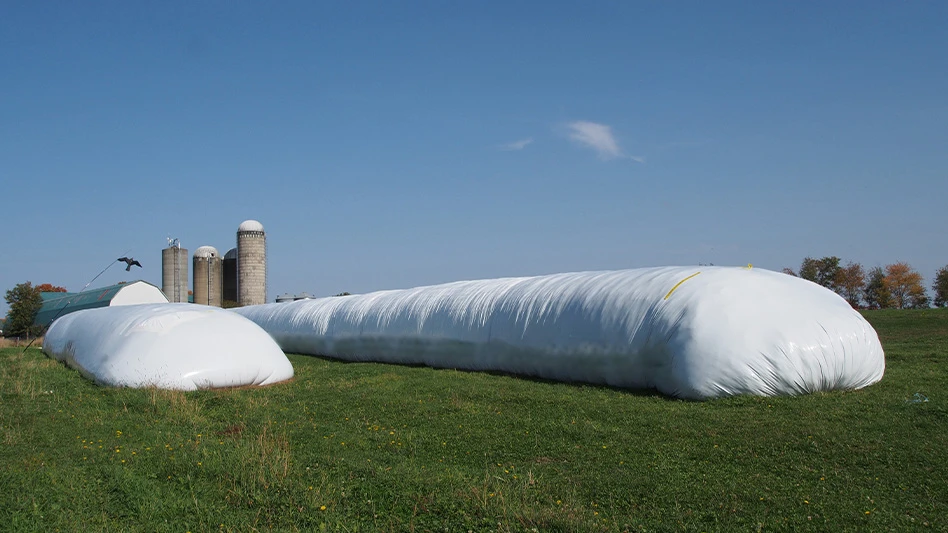
Photo courtesy of Cleanfarms Inc.
According to Ontario-based agricultural industry stewardship organization Cleanfarms Inc., a regulation similar to one covering electronics, pain and household appliances has been extended to the agricultural sector, with the objective of making the recycling and recovery of plastics and packaging used by farmers more accessible and reliable.
Cleanfarms says the regulation specifically requires that primary suppliers of products fund the development and implementation of a comprehensive system for the collection, recovery and recycling of agricultural plastics in Quebec. From Oct. 1, an “ecofee” is applied to certain agricultural products such as silage film, tarpaulins, food bags and other products used in agricultural production.
RELATED: RecyOuest starts Andritz recycling line for agricultural postuse plastic nets
Cleanfarms, which has a location in Saint-Bruno, Quebec, and is known in the province as AgriRÉCUP, is the organization recognized to manage the recovery and recycling program throughout the province.
“Farmers are citizens who care about the environment because it goes hand in hand with the health of farmland and the desire to pass on their business from generation to generation,” says Cleanfarms Eastern Director Christine Lajeunesse. “They want their plastics and packaging to be recycled or recovered.”
The organization says the scale of the new programs will result in increased volumes of agricultural plastics being recovered for recycling or safe disposal, accelerating the progress of Quebec’s agricultural sector toward zero waste in landfills.
A nonprofit, Cleanfarms says it has been a major player in the recovery and recycling of agricultural products in Quebec and Canada for several years. The organization was selected by agricultural suppliers to manage the new program. On July 11 of this year, Recyc-Quebec approved the organization’s recovery and recycling program plan and designated it the recognized management organization for the majority of plastic and packaging categories used in agriculture.
In collaboration with Cleanfarms, companies that supply agricultural products, associations and farmers have worked to develop a collection network.
“Farmers and the businesses that support them are proud to produce healthy food for us and our families,” Lajeunesse says. “They also want to contribute to healthy and sustainable agriculture. It is great to see an entire sector and its sectors working together on a shared commitment to environmental responsibility.”
Cleanfarms says that as the program develops, it will result in investments in recycling technology and systems to fuel a stronger circular economy in Quebec. Programs will be available for the following sub-categories of agricultural products:
- plastics used for the preservation or wrapping of silage or hay, such as films, nets, twine, tubes and their ends, bags and webs;
- bags designed and intended for agricultural use, such as grain bags and silo bags, bags of chips and bags of supplements, minerals, fertilizers, seeds and feed;
- containers, cans, barrels and tanks designed and intended for agricultural use, such as seed, fertilizer, pesticide, soil amendment and sanitary containers;
- maple syrup tubing; and
- Class 1 to Class 3A pesticides and pesticide-coated seed
Cleanfarms has a network of over 1,500 collection sites across Canada and is funded by its members in the crop protection, seed, fertilizer, animal health medication and agricultural plastics industries. In addition to Saint-Bruno, Quebec, the organization has staff located in Ontario, Manitoba, Saskatchewan and Alberta.
Latest from Recycling Today
- Aqua Metals secures $1.5M loan, reports operational strides
- AF&PA urges veto of NY bill
- Aluminum Association includes recycling among 2025 policy priorities
- AISI applauds waterways spending bill
- Lux Research questions hydrogen’s transportation role
- Sonoco selling thermoformed, flexible packaging business to Toppan for $1.8B
- ReMA offers Superfund informational reports
- Hyster-Yale commits to US production





